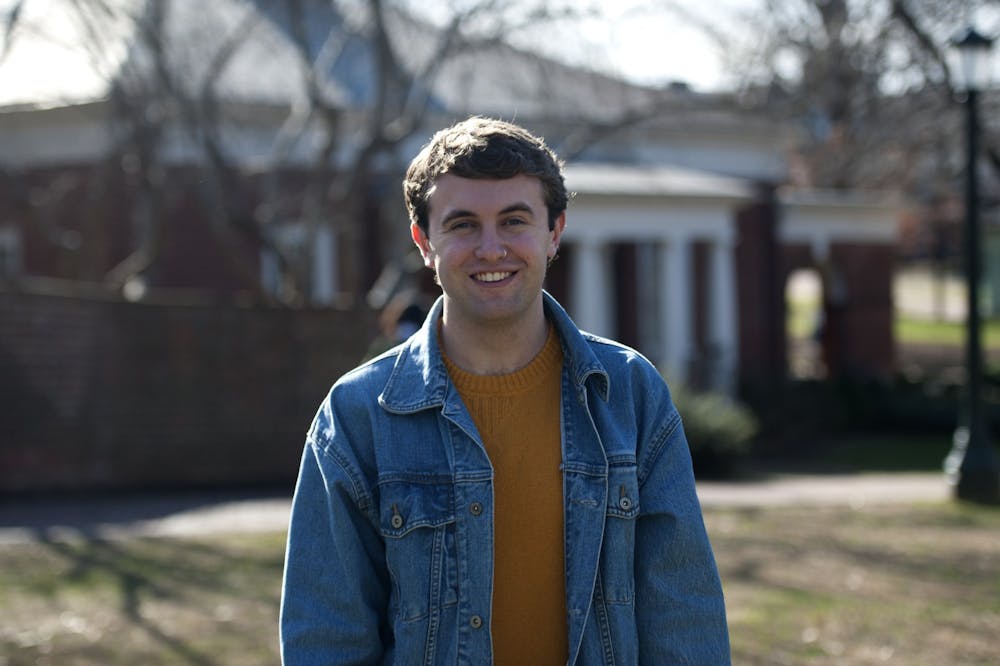In the isolated world of COVID-19, where I’ve found it all too easy to feel helpless and alone, I realized that the unity of voices among the U.Va. Twitter community offered me a camaraderie unlike any other. So many people who I’ve only ever interacted with as small bubbles on a screen came to feel like friends to me — friends who, through their passionate calls for change, encourage me to find my own voice and equip myself for action.
I first began interacting with my U.Va. peers online at the end of last semester when the world was flipped on its side.
Following the murder of George Floyd by police officers May 25, it would be an understatement to say that the Black Lives Matter movement gained an unprecedented level of prominence on my Twitter feed. For the first week after George Floyd’s death, virtually all I saw were tweets inciting Americans to march and advocate for racial equality, donate to bail funds and GoFundMe pages and sign and share petitions calling for justice and the abolition of police. Tweets and retweets came from all over the world, but I noticed that I was especially moved by the passionate voices that came from my fellow students at the University.
At a time when I felt discouraged by the state of our nation, heartbroken for Americans who don’t share the same skin color as me and utterly at a loss for any course of action to show my support, I found myself clinging to the words of my classmates. This summer, Black students spoke from their life experience and education — I’d be remiss not to mention Zyahna Bryant, Charlottesville activist and second-year College student — and many other students of various races proved they were listening.
But student activism didn’t draw the line at racial equity. A week or so into June, @ExposedUva popped up on my feed, sharing the stories of sexual assaults caused by students and staff at the University. I remember one tweet in particular read “It’s time sexual assault on Grounds is brought to the forefront,” and U.Va. Twitter did its best to make that happen. I noticed multiple students rallying around the account, offering words of encouragement to survivors, sharing their own experiences and highlighting the fact that from 2002-2013, the University failed to expel one perpetrator of the 205 reported sexual assaults while simultaneously expelling 183 students for violating the Honor Code.
Then Midsummers rolled around — an annual event where out of town students return to Grounds to reunite with their friends for a weekend of fun around the Fourth of July. Under normal circumstances, hardly anyone would bat an eye at the rambunctious parties decorating Mad Bowl, but Midsummers happened to fall in the middle of a global pandemic this year. My feed became a warzone as accounts like @misanthrogoose reposted images of students endangering the area by attending large parties and implored everyone to “be responsible — work to protect yourself, others, and your community.”
At every step of the way this summer, no matter what the call, I saw U.Va. students on Twitter rise to the occasion. As the days go on, I see more and more people using their voices to do good work — work that is now primarily focused on making the University understand the consequences of bringing students back to Grounds and resuming in-person instruction in the middle of a pandemic.
Admittedly, my social circle at the University is really not that large, and I’ve never been one for Internet friends, but with each voice that stood up about injustices, fought to make victims heard and strove to make both Charlottesville and the University a safer place, I added another person to my following list.
When we can’t engage with each other in person, I am grateful that we have the technology allowing us to engage with each other online. I encourage anyone that has access to use social media accounts to interact with different kinds of voices, educate yourself on social topics and issues and advocate in your own way — finding other U.Va. students on Twitter is a good place to start.
I recognize that a lot of the powerful voices I have mentioned or alluded to belong to Black, LGBTQ+ or other minority communities at the University, and I appreciate their diverse perspectives immensely. This appreciation runs deep, as the multitude of voices on U.Va. Twitter engages in complicated but necessary conversations that will help shape the University, the country and the world in the days to come. Along with many other important lessons highlighted during COVID-19, the forward-thinking minds of my peers prove that U.Va. Twitter is a powerhouse and truly a force to be reckoned with.
Aaron Doss is a Life Columnist at The Cavalier Daily. He can be reached at life@cavalierdaily.com.







